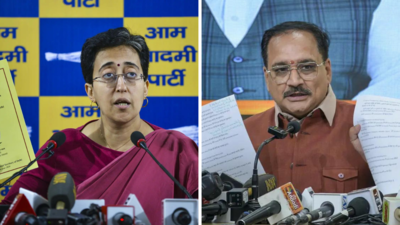Bharatiya Janata Party MLA Harish Khurana has accused the Aam Aadmi Party of failing to address numerous Comptroller and Auditor General reports, claiming that only two out of sixteen have been presented in the Delhi Legislative Assembly, leaving fourteen still pending.
Khurana emphasized that the BJP government is committed to tabling all CAG reports to ensure transparency and accountability.
The CAG, as India’s supreme audit institution, plays a crucial role in auditing government expenditures and ensuring financial propriety. The pending reports are expected to shed light on various aspects of the previous administration’s performance, including health services, infrastructure projects, and other public welfare schemes.
One of the reports focuses on the now-scrapped liquor policy, alleging a revenue loss of approximately ₹2,000 crore due to procedural lapses and inadequate oversight. The report highlights the Excise Department’s failure to implement Rule 35 of the Delhi Excise Rules, 2010, which prohibits issuing multiple licenses of different categories to related parties, leading to conflicts of interest and potential revenue losses.
In response to these allegations, AAP leaders have criticized the BJP’s actions. Atishi, the Leader of Opposition in the Delhi Assembly, argued that the CAG report confirms their stance on corruption within liquor sales, pointing out that over 28% of corruption was attributed to contractors, with profits allegedly diverted to intermediaries.
The BJP has also raised concerns about irregularities in health infrastructure projects under the previous AAP administration. Khurana criticized the AAP government for cost escalations and overpricing in several projects, attributing these issues to delays and mismanagement. He highlighted that in eleven years, only three hospitals were constructed, each incurring substantial costs.
The BJP’s decision to table the pending CAG reports is seen as an effort to bring these alleged irregularities to light and hold the previous administration accountable. The reports are expected to provide detailed insights into the financial and operational conduct of the AAP government during its tenure.
As the Delhi Assembly session progresses, discussions surrounding these reports are anticipated to intensify, with both parties presenting their perspectives on the findings. The outcome of these deliberations will likely influence public opinion and could have significant implications for future governance in the capital.
The tabling of these reports underscores the importance of transparency and accountability in governance. It also highlights the critical role of oversight institutions like the CAG in maintaining checks and balances within the democratic framework. The revelations from these reports may prompt further investigations and policy reforms to address the identified shortcomings and prevent future occurrences.
Both the BJP and AAP have a vested interest in the outcomes of these discussions, as they could impact their political standing and influence in Delhi. The public and political analysts alike are keenly observing the proceedings, awaiting the detailed disclosures from the CAG reports and the subsequent actions taken by the legislative assembly.
In the coming days, the Delhi Assembly is expected to delve deeper into the contents of the CAG reports, facilitating debates and discussions aimed at addressing the issues raised. The legislative process will play a pivotal role in determining the course of action to rectify any identified irregularities and enhance governance practices in the capital.
The focus on these pending reports also brings attention to the procedural aspects of governance, emphasizing the need for timely audits and presentations to uphold the principles of accountability and transparency. The delay in tabling these reports has raised questions about administrative efficiency and the commitment to ethical governance standards.




 Anticipation Builds Over Prospective Union Cabinet Reshuffle
Anticipation Builds Over Prospective Union Cabinet Reshuffle 